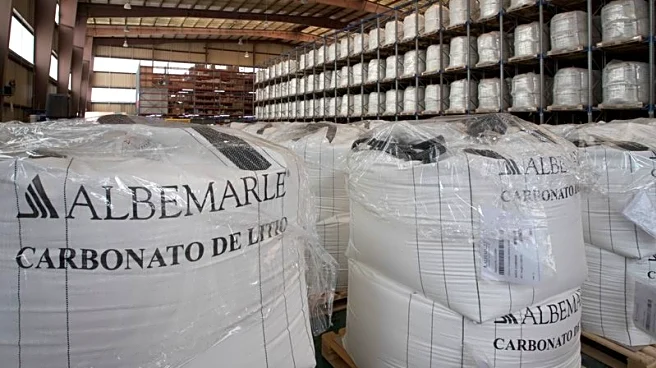Rapid Read • 9 min read
Houseplants are being highlighted as effective natural solutions for repelling common kitchen pests. Certain plants, such as lemongrass, marigolds, lavender, catnip, chrysanthemums, and carnivorous plants like the Venus flytrap, release scents and oils that deter insects. These plants not only add aesthetic value to a kitchen but also serve as a natural pest management strategy. Herbs like basil, mint, sage, and rosemary can double as flavor enhancers while keeping flies at bay. Marigolds emit a strong odor that repels gnats and midges, while lavender deters moths and beetles. Catnip affects insects' chemical receptors, causing discomfort and driving them away. Chrysanthemums are known to repel a wide range of insects, although they can be toxic to pets. Carnivorous plants attract and digest insects, providing entertainment and pest control. These plants offer a chemical-free alternative to traditional pest control methods.
AD
The use of houseplants for pest control is significant as it provides a natural, eco-friendly alternative to chemical sprays, which can be harmful to humans and pets. This approach aligns with growing consumer preferences for sustainable and health-conscious solutions. By integrating these plants into kitchen spaces, homeowners can reduce their reliance on chemical products, potentially lowering exposure to toxins and allergens. Additionally, these plants can enhance the aesthetic appeal of a home while offering practical benefits. The trend towards natural pest control reflects broader environmental and health movements, encouraging individuals to consider the impact of their choices on personal and planetary health.
As awareness of natural pest control methods grows, it is likely that more households will adopt houseplants as part of their pest management strategies. Retailers may see increased demand for these specific plants, prompting them to expand their offerings. Gardening and home improvement sectors could capitalize on this trend by providing educational resources and products that support sustainable living. Furthermore, research into the effectiveness of various plants in pest control could lead to new discoveries and innovations in the field. Homeowners may also explore combining these plants with other natural alternatives, such as essential oils and coffee grounds, to enhance their pest control efforts.
The shift towards using houseplants for pest control may have broader implications for environmental sustainability and public health. By reducing the use of chemical pesticides, individuals contribute to decreased chemical runoff and pollution, benefiting ecosystems and water sources. This approach also supports biodiversity, as it encourages the cultivation of diverse plant species. Culturally, the trend reflects a growing interest in holistic and natural living, influencing lifestyle choices and consumer behavior. As more people embrace these methods, there may be increased advocacy for policies that promote sustainable practices in agriculture and pest management.
AD
More Stories You Might Enjoy












